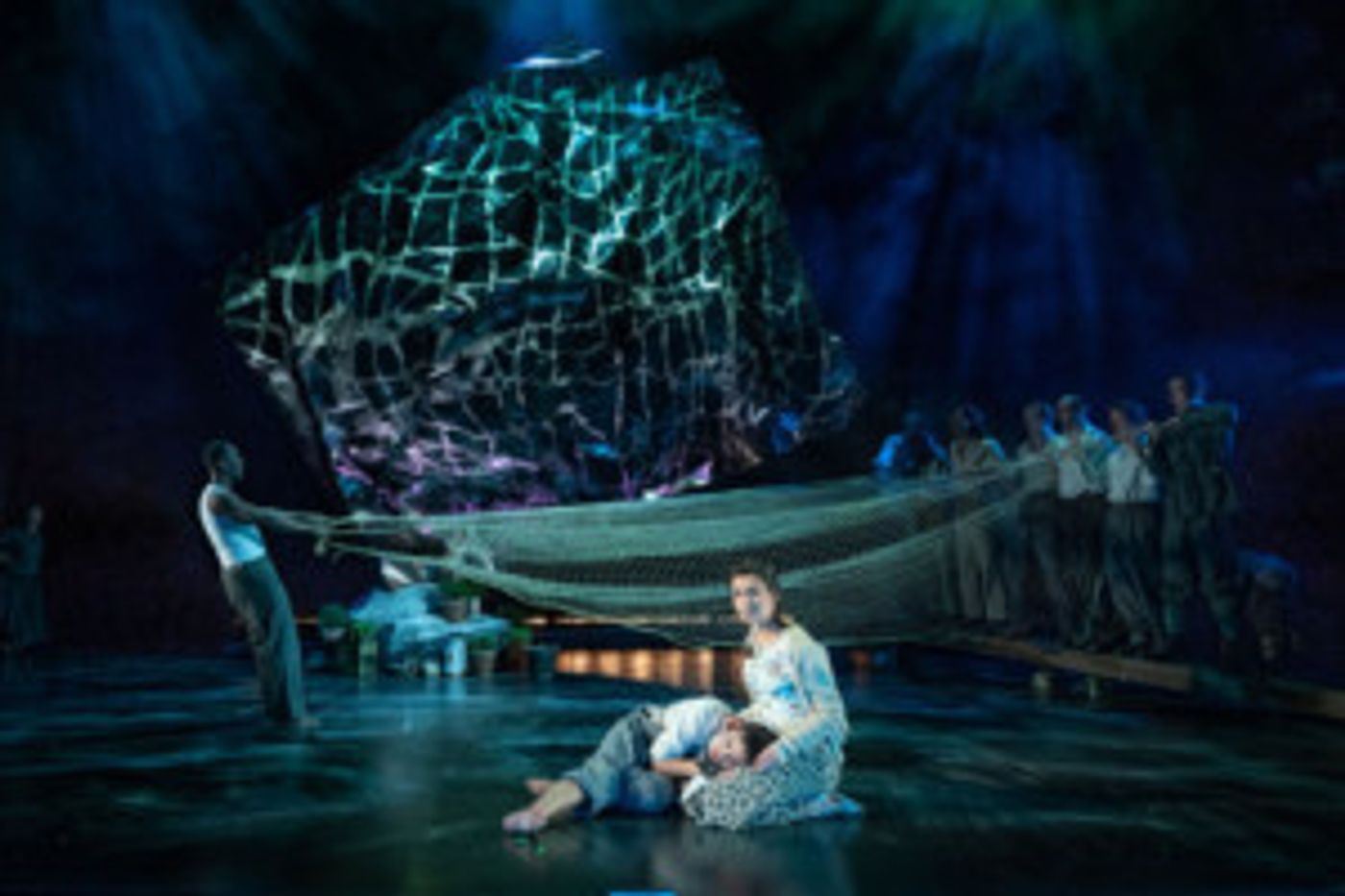Review: CAPTAIN CORELLI'S MANDOLIN, Harold Pinter Theatre

![]()
The Second World War is about to break out, but the inhabitants of the Greek island Cephelonia, the "bridge between the human and the eternal", think themselves too far from the war. Despite this sense of impending doom, young Pelagia (Madison Clare) still dreams of becoming a doctor and has fallen in love with a young man in her village.
Thus opens Captain Corelli's Mandolin, Rona Munro's adaptation of Louis De Bernières' novel, which was adapted to film in 2001. Having recently completed a UK tour, the show now enters the Harold Pinter Theatre for a nine-week summer season.
When the war begins and Pelagia's fiancé Mandras (Ashley Gayle) must leave to serve in the Greek army, reality hunts down the dreamy island, which is soon occupied by German and Italian soldiers. The titular Corelli (Alex Mugnaioni), a man who believes his men should sing each morning, moves into Pelagia's house and, well, you can imagine what happens next...
Mayou Trikerioti's set is dominated by two sheets of crumpled metal that are meant to be a representation of the letters sent and received by various characters throughout the war. Dom Baker's projections - which include waves of seawater and blood or an outline of the island - help place audiences within the world of the play slickly and efficiently.
With direction from Melly Still, there are some fine performances. Clare's Pelagia is headstrong and feisty whilst her father, Dr Iannis, is played with warmth by Joseph Long. Eve Polycarpou's musical accompaniment beautifully captures the pathos and pain of war.
Movement director George Siena has also done a superb job: Luisa Guerreiro as the goat and Elizabeth Mary William as Psipsina the weasel (or "Greek cat") are wonderful for their comic and fluid embodiments respectively of each animal. When the invading soldiers steal the goat for food, the audible gasp of sadness in the audience certainly proved a testimony to Clare's dry performance.
There are moments of exquisite staging in this production. Particularly clever, if terrifying, is when actors grotesquely push through a web-like material to depict the freezing conditions on the warfront. It is clear that through touring this has become a sleek and polished show.
Yet, for all these positives, this production suffers from an overlong script and clunky pacing. Admittedly this is meant to be a war play, but there are only so many explosions represented by bright lights and loud noises one can take before they lose their discombobulating impact.
The play also seems to be in contention with The Lord of the Rings for having the most endings. At least 20 minutes too long, moving to the island's further problems in the post-war period means the work becomes tedious. The episodic frame generally works well, but the quick shifting between the Cephalonian people and the Italian soldiers at the beginning of the play can be quite confusing.
The character of Corelli seems to have been lost in adaptation. Mugnaioni does a sound job with the material, but the figure's juxtaposition of his musical talent with his apparent dislike of war doesn't quite extend throughout the piece; Mugnaioni's stunning mandolin playing should be used much more closely in relation to the plot's unfolding to provide some tonal consistency.
It's ironic, really, that Dr Iannis spends so much of the play quoting stories about Homer's Odysseus, as Captain Corelli's Mandolin truly feels like an odyssey. The play is, in parts, haunting and lyrical, but it is also too long. By the end, I must admit, I was begging for Corelli to strum his last note.
Captain Corelli's Mandolin is at the Harold Pinter Theatre until 31 August
Photograph: Marc Brenner
Reader Reviews
Videos

